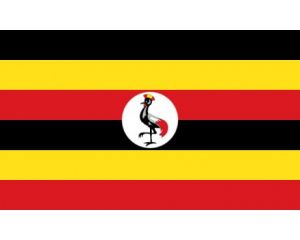Language/Ganda/Vocabulary/Days-of-the-Week
Hi Ganda learners! 😊
In this lesson, we will learn the days of the week in Ganda. Knowing the names of the days of the week is essential in learning any language because it helps you to schedule your appointments and make plans with others. We will also explore some cultural aspects of Ganda language.
Consider exploring these related pages after completing this lesson:Say Hello and Greetings in Ganda, Clothes & Drinks.
Ganda Days of the Week[edit | edit source]
The days of the week in Ganda are derived from Arabic language. The Islamic day starts at sunset, and so does the Ganda week. In Ganda, the week starts on Sunday and ends on Saturday. Here are the days of the week in Ganda:
| Ganda | Pronunciation | English |
|---|---|---|
| Sanyuuse | /sàn-jù-ù-sà/ | Sunday |
| Gwokka | /gwò-kkà/ | Monday |
| Ssennkukkonde | /sèn-kkù-kkòn-dé/ | Tuesday |
| Sseruggendo | /sè-rù-ggèn-dò/ | Wednesday |
| Kkakiiko | /kkà-kìì-kò/ | Thursday |
| Kkoojjo | /kkò-ò-jjó/ | Friday |
| Saabbiiti | /sà-bbìì-tì/ | Saturday |
As you can see, some of the days of the week have longer names than others. For example, Wednesday is Sseruggendo, which means "middle of the week". Thursday is Kkakiiko, and it means "the day after tomorrow". Similarly, Friday is Kkoojjo, which means "preparation day", as it is the day before the weekend starts.
Dialogue[edit | edit source]
Here is a dialogue to help you learn how to use the days of the week in context. Pay attention to the pronunciation and the meaning of the words.
- Person 1: Muliisa, sanyuuse nnyo? (Good morning, is it Sunday?)
- Person 2: Yee, sanyuuse. Kati ogenda ku mwaka waffe? (Yes, it's Sunday. Where are you going today?)
- Person 1: Nze na kubaawo ssaawa kumi n'ebyo. (I am going to church at ten o'clock.)
- Person 2: Mujooga! (Great!)
Cultural Significance[edit | edit source]
In Ganda culture, certain days of the week have special significance. For instance, Friday is considered the most important day for Muslims, and many Muslims attend Friday prayer services at the mosque. Tuesday is known as "market day," and it is when people in rural areas visit the local market to buy and sell goods. Saturday is a popular day for traditional wedding ceremonies, which often include music, dancing, and feasting.
Practice Exercise[edit | edit source]
Using the days of the week you have learned, translate the following sentences into Ganda. The English translations are provided, but try to write your answers before checking them.
1. What day is it today? (Ssennkukkonde) 2. I have a meeting on Wednesday. (Sseruggendo) 3. Friday is my favorite day of the week. (Kkoojjo) 4. My birthday is on Sunday. (Sanyuuse) 5. Let's meet on Saturday. (Saabbiiti)
1. Kulikoze kuno ki? (Ssennkukkonde) 2. Ndi mukwano gw'ensiiga mu Sseruggendo. (Sseruggendo) 3. Kkoojjo ndi musanyufu gwange ogw'okukozi. (Kkoojjo) 4. Omwana wange ogwokumi ku sanyuuse. (Sanyuuse) 5. Tuwaye ku Saabbiiti. (Saabbiiti)
Conclusion[edit | edit source]
Now you know the days of the week in Ganda. Ahengera bulungi! (Practice well!) To improve your [Language/Ganda|Ganda] [Language/Ganda/Vocabulary|Vocabulary], you can also use the Polyglot Club website. Find native speakers and ask them any questions!
➡ If you have any questions, please ask them in the comments section below.
➡ Feel free to edit this wiki page if you think it can be improved. 😎
SEO tags[edit | edit source]
With this lesson finished, you may want to explore these additional pages:Education & Fruits.

